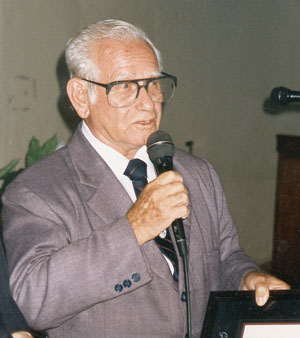We Americans can be pretty arrogant and condescending toward the rest of the world. Our current president has certainly exemplified that attitude. But I’m not here to dump on George W. In the church, in our missions efforts, we’ve certainly been that way, too. Our attitude toward churches in other countries has been, “We have things figured out. We’ve written tons of books on church growth and evangelism and everything else regarding what the church should be. Let us come to your country and tell you how to do it. We’ll train your pastors right. We’ll bring programs that will work in your country, because they’ve been proven effective in God’s favorite country, the US of A.” And so, when Americans go overseas, it’s usually to be teachers and trainers for ignorant Third Worlders.
Having visited United Brethren churches in several other countries, I’m well aware that they, too, have people who know what they’re doing. Good, godly people. People who could teach us a lot, especially about sacrifice and commitment, even though they haven’t written books or earned advanced degrees or keynoted major conferences.
This is why I’m thrilled with the example of my denomination’s church in Fowlerville, Mich. This is one of our premier churches. They do have a lot to teach. But when a group from Fowlerville went to Honduras recently, they took the role of servants. The Hondurans were holding a leadership conference. Did these Fowlerville people hold seminars and Q&A session at the conference to dispense their profound experience and knowledge? No. The Hondurans planned and led the conference, and they were fully capable to doing that. The Fowlerville people, instead, assumed the role of servants, taking care of support and background roles. They cared for the children, helped with clean-up, did food preparation, etc. This freed the Hondurans to focus on the goals of the retreat.
I tell you, this type of humble spirit, coming from Americans, warms my heart. Fowlerville “gets it.”


 I spent four years on his biography, which is wrapped around a history of our mission work in Honduras. It was the most satisfying piece of writing I’ve ever done, and I’ve done a lot of writing. I interviewed 40-some people for it, and did huge amounts of research beyond that. We unveiled it during the 2001 US National Conference, which Archie was able to attend. It was a big, big deal for him–and his family–and it wouldn’t have happened without the book. So it’s highly satisfying on that level, too.
I spent four years on his biography, which is wrapped around a history of our mission work in Honduras. It was the most satisfying piece of writing I’ve ever done, and I’ve done a lot of writing. I interviewed 40-some people for it, and did huge amounts of research beyond that. We unveiled it during the 2001 US National Conference, which Archie was able to attend. It was a big, big deal for him–and his family–and it wouldn’t have happened without the book. So it’s highly satisfying on that level, too.



